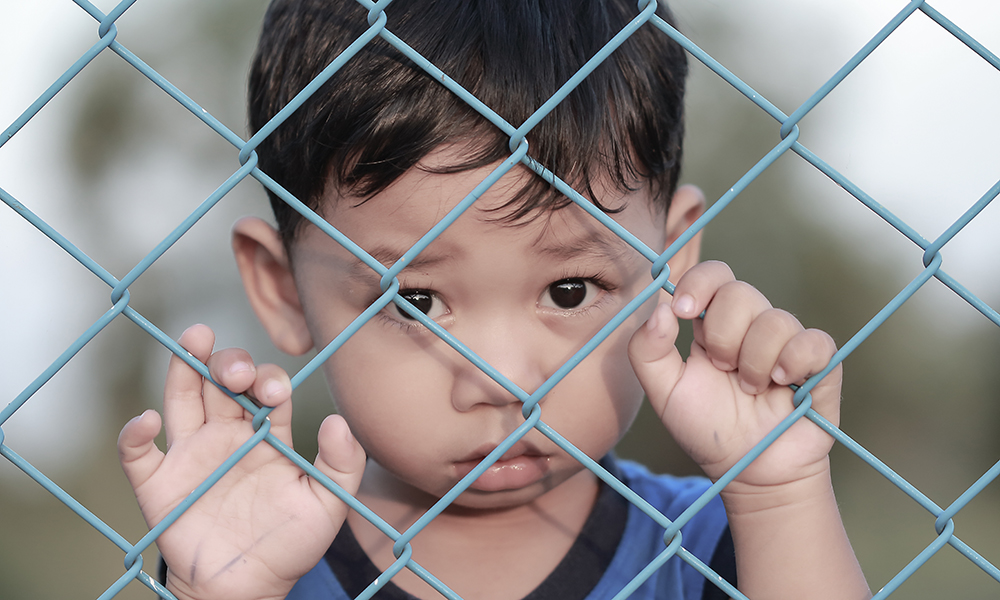The struggle to reunite a Congolese woman swept up in an immigration crackdown with her little girl — and to reunite countless families like them — continues, child welfare advocates say.
“Ms. L,” as she is identified in court records, was arrested and locked up in San Diego, while her 7-year-old daughter — identified in court papers as “S.S.” — was sent to an immigration holding center in Chicago. The ACLU headed a lawsuit that led to Ms. L’s release on March 6 but the little girl remains in detention, said Sandy Santana, executive director of Children’s Rights, one of 15 groups that filed an amicus brief in the suit.
Last week, the ACLU filed an expanded suit against the Trump administration, claiming its policy of separating asylum seekers from their children is unlawful.
“The separation of children from their parents is universally regarded as one of the most unconscionable and harmful acts that any society or government can commit,” said Luis H. Zayas, the dean of social work at the University of Texas, who also joined the ACLU’s Ms. L case. “For children to be separated to punish parents who were simply seeking safety for their children and themselves is to add a layer of trauma. This is done under the guise of immigration enforcement.”
Ms. L’s and S.S.’s case may be extreme, but Santana, Zayas and others are worried they are becoming a new normal under President Donald Trump. More than that, Santana said he is worried about the U.S.-born children of undocumented immigrants — at least 6 million, according to the American Immigration Council — who are at risk of being thrust into the care of an already overburdened foster care system.
“We believe there's a lot of law that says all parents have a constitutional right to be with their kids,” Santana said.
The Trump administration and its allies say the harsh measures are necessary — and working. According to government data, immigration arrests at the U.S.-Mexican border have dropped to their lowest levels in decades, an indication that would-be illegal immigrants are thinking twice before heading to the United States. Anti-immigration activists have long argued that illegal immigrants compete for low-skill jobs and drive down wages for those Americans who need them most.
It’s unclear how many children — documented or not — have been affected by the Trump raids, Santana said. The last major study, published in 2011, found that there were thousands of children — citizens themselves — who had been put into foster care after one or more of their parents were deported.
“One of the reasons we don't have that [number of children] is because child welfare organizations aren't required to track it,” Santana said. “We don't know what the actual numbers are.”
That 2011 study, by Applied Research (now called Race Forward), found that some 5,000 children were in foster care. But it’s consensus among child welfare advocates that that number was low, Santana said. When he was president, Barack Obama had set the presidential record for deportations.
There is likely to be a high emotional bill in the years ahead, whatever now happens to these youths, Zayas said.
“The psychological and social development of these children are deeply affected, and their mental health imperiled by the actions that do not take into consideration the humanity of those who are most vulnerable,” he said.
Obama’s policy was to keep asylum seekers — such as Ms. L — with their families and to detain them for no longer than 21 days before releasing them.
The Trump administration is considering rules that would separate asylum-seeking families at the border. Obama’s deportation policy also focused on those immigrants who had committed a crime. Trump changed that policy to deport anyone who was here illegally. He is now on pace to shatter Obama’s record.
The Trump administration says the crackdown is an effective deterrent to all immigration, thereby preserving an already strained social welfare system.
Zayas isn’t impressed.
“Our country needs to consider this is a humanitarian matter rather than a simple policy matter of deporting people, building walls, or enforcing immigration laws without any thought to the people affected,” he said.
